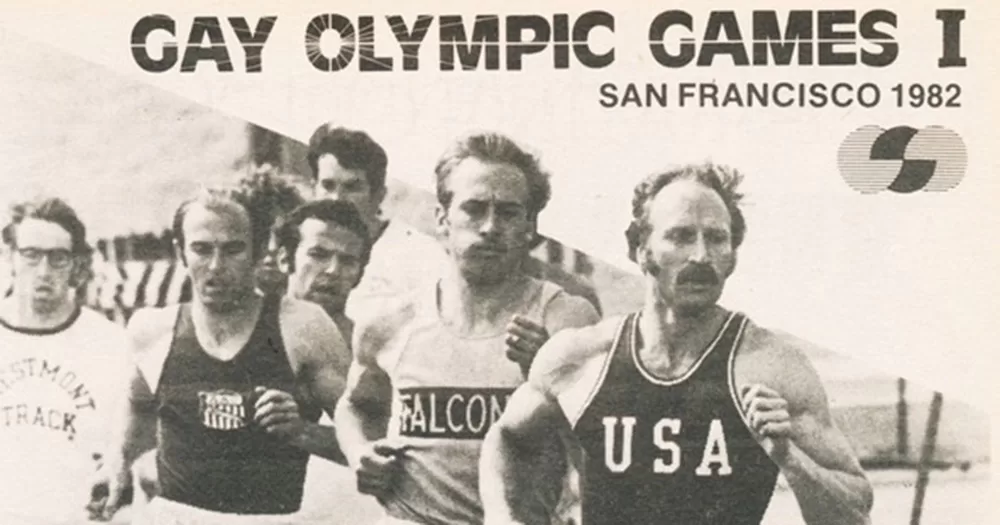Every four years, LGBTQ+ athletes from all around the world come together to participate in the Gay Games, a tournament first established to promote the acceptance and inclusion of queer people in sport. Since its inception, it has gone from strength to strength, with the 2023 edition making history by taking place in Asia for the first time, as Hong Kong shared hosting rights with Guadalajara in Mexico.
The Games began as the Gay Olympics, with the organising committee founded on June 15, 1980, by activist Tom Waddell and his friends Mark Brown and Paul Mart. Waddell himself competed as a decathlete in the 1968 Summer Olympics and he based much of his new endeavour on the model of the famous global sporting event.
The name, however, didn’t last, as three weeks before its inaugural edition, a lawsuit filed by the International Olympic Committee forced a title change. Thus, it was not the Gay Olympics but the Gay Games that made its debut in San Francisco in 1982.
The Californian city was chosen as the host not only because it was Waddell’s home but also because the event had support from local government and essential services. Additionally, there was a large queer population in the area that served as volunteers and leaders. In the lead up to the event, one group of lesbians fixed up Kezar Stadium, one of the main venues and the previous home of the San Francisco 49ers.
Today is the birthday of Dr. Tom Waddell, Olympian and Gay Games Founder (November 1, 1937) who died from AIDS in 1987, aged 49.
Thank you Tom for being an inspiration to many of us all!#gghk #gghk2022 #GayGamesHK2022 #UnityInDiversity #GayGames #LGBTQ #pride #hongkong pic.twitter.com/Fen4R74PQ3
— GAY GAMES 11 HONG KONG 2023 (@GayGamesHK2023) November 1, 2020
The tournament kicked off on August 28 with former US Olympians George Frenn and Susan McGrievy lighting the flame on a torch that had been carried from the site of the Stonewall riots in New York to Kezar Stadium. It was there that the opening ceremony took place, featuring a performance from none other than Tina Turner.
Across the next eight days, 1,350 competitors from over 170 cities participated. In order to achieve greater diversity, outreach committees recruited athletes from minority groups, including people of colour, women and LGBTQ+ people living in rural areas. Because Waddell had a distaste for the nationalism of major sporting events, participants represented their cities rather than countries and designed their own uniforms.
There were a total of 17 sports on offer, namely basketball, billiards, bowling, boxing, cycling, golf, marathon, physique, powerlifting, soccer, softball, swimming, diving, tennis, track and field, volleyball and wrestling. Interestingly, competitive elements such as medal tallies and ceremonies and recording athletic records were all scrapped.
The closing ceremony took place on September 5, with Stephanie Mills performing along with the San Francisco Gay Freedom Day Marching Band and Twirling Corps, and Meg Christian. Then-congressman Philip Burton, who at the time had been working with gay liaison Bill Kraus to create legislation and funding for AIDS research, also spoke before the tournament officially concluded.
28th August 1982: The first Gay Games take place in San Francisco’s Kezar Stadium. 1,350 athletes take part in an effort to promote the inclusion and acceptance of LGBTQ+ people in sport. #OnThisDay #Queerstory pic.twitter.com/w4CUgQ96zE
— Gay Community News (@GCNmag) August 28, 2021
The event is said to have attracted roughly 10,000 people, and combined with a fundraising effort from the organisers, it managed to break even, costing $380,000 and bringing in $395,000. This encouraged Waddell and the committee, now known as the San Francisco Art & Athletics (SFAA) Committee, to continue the Games and hold its second edition in 1986.
Since 1982, it has taken place 10 more times across eight countries and has been credited with largely influencing the boom of LGBTQ+ sports clubs across the world. Furthermore, a number of major athletes have come out as part of the Games, including Olympic gold medalist Bruce Hayes in 1990 and diver Greg Louganis in 1994. It has no doubt helped to improve the visibility and acceptance of LGBTQ+ people in top-level sport, and has encouraged participation and inclusivity on a grassroots level.
The Gay Games’ next edition will take place in Valencia, Spain, in 2026.
© 2023 GCN (Gay Community News). All rights reserved.
Support GCN
GCN is a free, vital resource for Ireland’s LGBTQ+ community since 1988.
GCN is a trading name of National LGBT Federation CLG, a registered charity - Charity Number: 20034580.
GCN relies on the generous support of the community and allies to sustain the crucial work that we do. Producing GCN is costly, and, in an industry which has been hugely impacted by rising costs, we need your support to help sustain and grow this vital resource.
Supporting GCN for as little as €1.99 per month will help us continue our work as Ireland’s free, independent LGBTQ+ media.

comments. Please sign in to comment.